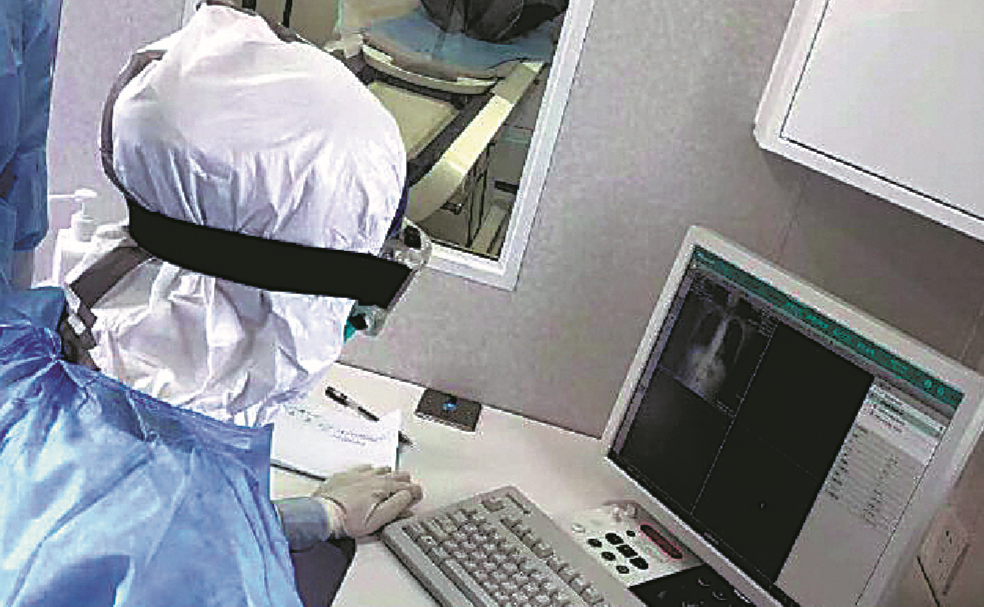Tech-powered imaging devices offer faster and more accurate diagnosis


China's leading medical artificial intelligence startups are helping medical workers on the frontline deal with the novel coronavirus outbreak, using medical imaging devices embedded with AI for clinical diagnosis of the disease.
When suspected cases piled up in Hubei province, the epicenter of the epidemic, medical AI was able to help doctors provide faster and more accurate clinical diagnosis while reducing their workload, industry workers said.
Through clinical diagnosis, the estimated identification of novel coronavirus cases is made based on symptoms, medical history and computerized tomography, or CT scans, before being confirmed by lab testing. This could reduce the possible spread of the virus and improve treatment outcomes.
Deepwise Healthcare, a medical AI pioneer that has offices in Beijing, Shanghai and Hangzhou, capital of Zhejiang province, has deployed nearly 40 medical AI imaging systems in Hubei province.
The company has updated features of the systems like CT scan identification of novel coronavirus patients.
Its technicians have also been installing and adjusting new AI-powered imaging systems in more than 30 designated hospitals outside Hubei province, while updating medical AI imaging systems for more than 400 hospitals across the country to better cope with the clinical diagnosis demand.
Qiao Xin, co-founder and CEO of Deepwise Healthcare, said such AI solutions can identify patients' CT scan features associated with the novel coronavirus very quickly, deliver detailed and quantitative evaluation reports on the infection, including the size and location of the infected areas and the impact on lung function, as well as provide treatment advice.
The system can also make intelligent comparison of a patient's successive reports to reveal the evolution of the disease.
"The significance of applying medical AI in clinical diagnosis of novel coronavirus patients is that the clinical diagnosis is made much faster, and with systematic evaluation reports," he said.
"That saves doctors on the frontline time and energy to treat more patients, which is very important considering the large number of patients awaiting diagnosis and treatment."
Yitu Healthcare, the health arm of Shanghai-based AI startup Yitu Technology Co Ltd, has also launched an updated version of an AI imaging evaluation system for the virus.
The system can diagnose and classify severity of the viral pneumonia based on key CT image features such as the morphology, range, and density of the lesion, and can precisely calculate the disease burden on the lungs.
Traditional manual methods for such quantitative evaluation usually requires five to six hours, and the new AI system can complete the analysis in two to three seconds, the company said.
Qiao said his company has also co-established four online medical AI platforms with partners using cloud technologies, through which radiologists nationwide can lend a hand to the frontline medical staff, especially since their counterparts are overloaded with work due to a shortage of medical professionals, especially in heavily stricken or remote areas.
Rimag, a Shenzhen-based third-party medical imaging service provider, said its cloud platform using medical AI imaging has provided service to more than 2,100 patients from 20 provinces. It plans to introduce more AI products to the platform to fight the epidemic.
Qiao said medical AI has even greater potential in epidemic prevention and control, as the technology, combined with big data, can also be used to survey, analyze and predict the spread of infectious diseases.
He said the novel coronavirus has alerted China to pay more attention to epidemic prevention and control in the future, for which the company will explore more application possibilities of medical AI.




































